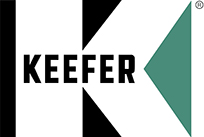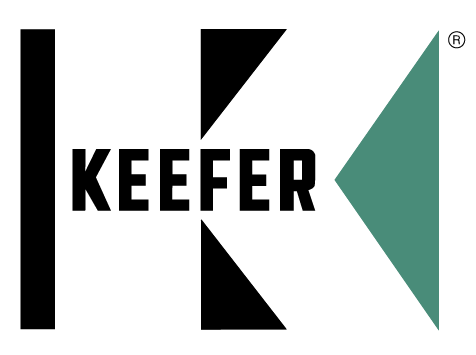“Step five! Don’t you know that the time has arrived.”
– Jonathan Knight, NKOTB
The Big Print Giveth, and the Fine Print Taketh Away
Acknowledging Bishop Fulton Sheen on that quote, sit down and take a close look at your business insurance policies, if you dare. You will find a labyrinth of legalese forms, replete with vague, ambiguous and confusing language understandable primarily by sophisticated lawyers.
Failure to negotiate or clarify this language up front can be dangerous, and you may find the coverage you purchased is not really working in your favor. For example, let’s say your company was one of the many victims of the May 2017 WannaCry global ransomware cyberattack, resulting in significant business interruption and losses. Fortunately, your company had a stand-alone cyber insurance policy in place that would cover this, right? Possibly not. Allow me to pull back the curtains a bit and explain.
Hidden away in many cyber policies is a “government actions” or “hostile/warlike action” exclusion, which will have some variation of the following language:
“This policy excludes coverage for claims based upon or arising out of any action or order by any foreign governmental authority to restrict access to, or provide access to, or intercept, confiscate, monitor or analyze, your network or any data, software or other information stored or processed on, or transmitted to or from, the network.”
Now, here’s where it gets interesting. According to a study by Carbon Black, a global cybersecurity vendor, 41% of its investigations involved events originating in either China or Russia.[1] Iran and North Korea are also known cyber event hotbeds, as are Pakistan and Vietnam. In fact, North Korea was alleged to be responsible for the WannaCry cyberattack mentioned above, while Russia was alleged to be responsible for one of the costliest cyber events in history, the global NotPetya ransomware attack.
You may see where I’m going with this. Given how broadly the above policy exclusion is written, every cyber event alleged to be “state-sponsored” (i.e., supported in some way, shape or form by a foreign government) could potentially be excluded from coverage. This is more than just conspiracy-theorizing. Mondelez International suffered over $100 million in losses from the NotPetya attack . . . and was then denied coverage by its insurer based on the alleged Russian backing.
Proactive insurance management means aligning your insurance program with appropriate business risk transfer. This also means identifying and then clarifying vague, ambiguous and confusing language up front, so you are not blind-sided by those hidden exclusions. For example, test the insurer on the language with a hypothetical similar to the above, and then see if it would be covered. If yes, get that confirmation in writing, as you may need that golden ticket later. If not, find out what you need to do to get coverage (even if that means going back to the market).
This is where Preventive Lawyers shine. They are skilled at sifting through the legalese jargon, identifying opportunities and areas of concern, and then working directly with your brokers and insurance carriers up front to ensure that the coverage you purchased for your business will actually react to a loss once it occurs. And if you choose not to transfer certain risks to insurers, Preventive Lawyers can help you develop and implement processes to anticipate and respond to these risks before they materialize.
And Speaking of Taketh Away . . .
At some point, your business may find itself on the receiving end of a lawsuit. This could involve defending against a defective product claim, employment claim, cyber claim, commercial auto accident claim or some other claim covered under your insurance policy. Or it could involve a contract claim, intellectual property claim, environmental claim, union/labor claim, antitrust claim or some other claim that is not typically covered by insurance. Either way, you will likely have a litigation attorney representing your interests. Or so you hope.
Proceed cautiously, my friends. Do not simply hand the matter off to these attorneys and then wipe your hands clean. You should be directly involved in managing your lawyers, working with them to understand and develop strategies that are business-forward. Believe me, having been a litigator myself, as well as having managed litigators in insured and non-insured settings, I can speak directly to the importance of the company client being directly involved in the process (hint, this will ensure your company’s best interests are being protected, which isn’t always the case).
Failing to do so can result in strategies and outcomes you did not anticipate. Here are some examples where KEEFER managed litigation for clients after things had started going sideways with their counsel:
-
In an insured product defect lawsuit involving a death, the litigation attorney provided by the insurance company had given opinions and recommendations to the insurer resulting in massive defense and loss reserves that were significantly (and adversely) affecting our client’s upcoming insurance renewal. Following our engagement, we worked with that attorney and the claims adjuster to streamline the defense to focus on aggressively pursuing indemnity against a co-defendant under the contract between them. The strategy worked, and the insurer was able to settle for a nuisance-value sum, resulting in our client avoiding a substantial increase in premium at renewal.
-
In an insured commercial auto lawsuit involving brain damage claims, panel counsel had been recommending to the insurer to take the case to trial given favorable liability factors. Again, this strategy was not business-forward given: (1) high potential defense and loss reserves which could affect premium; and (2) an outlier risk at trial of a verdict in excess of the insurance limit. We worked with counsel and the claims adjuster to streamline the strategy to only what was necessary to pursue a meaningful mediation. The strategy worked, and the case was settled at mediation, favorably affecting renewal and further removing the risk of excess exposure in the process.
-
We were retained by a manufacturer on the eve of trial to manage a series of union/labor claims. The company had not managed these claims, simply handing them over to its law firm to defend. After two years of unmanaged litigation, the firm had racked up nearly $300,000 in legal fees. Even worse, the firm had been increasing rates and making questionable staffing and strategy choices without first discussing them with the company, resulting in significant risk exposure. We quickly replaced this firm with a more business-forward one, and then worked arm-in-arm with the new firm and company to: (1) settle the claims with minimal impact to the company; and (2) develop strategies to minimize the likelihood of this happening again. All of this worked, and the company was able to resolve the dispute amicably, and without the need for further costly and unnecessary litigation.
Proactive litigation management means understanding the strategies being considered by counsel throughout each stage of a lawsuit, as well as their consequences to your business, and then working directly with counsel to fine-tune and implement them. For example, spending $250,000 on attorneys’ fees to go through trial may not make business sense when you have an opportunity to settle early on for $100,000 (and adversely affecting your insurance premium).
On the other hand, taking a couple defensible product claims through trial may send a message to prospective claimants that they will have to make their own business decisions when deciding whether or not they should go after your business (thus minimizing the number of future claims and, in turn, future premium exposure). There is no hard and fast rule, and each case can and should be analyzed given a number of factors.
As one of the nation’s only practices focused exclusively on Preventive Law, KEEFER is skilled at managing insurance, claims and litigation programs, providing business-forward strategies to minimize exposure. KEEFER is your ounce of prevention.
[1] https://www.carbonblack.com/global-incident-response-threat-report/november-2018/





















